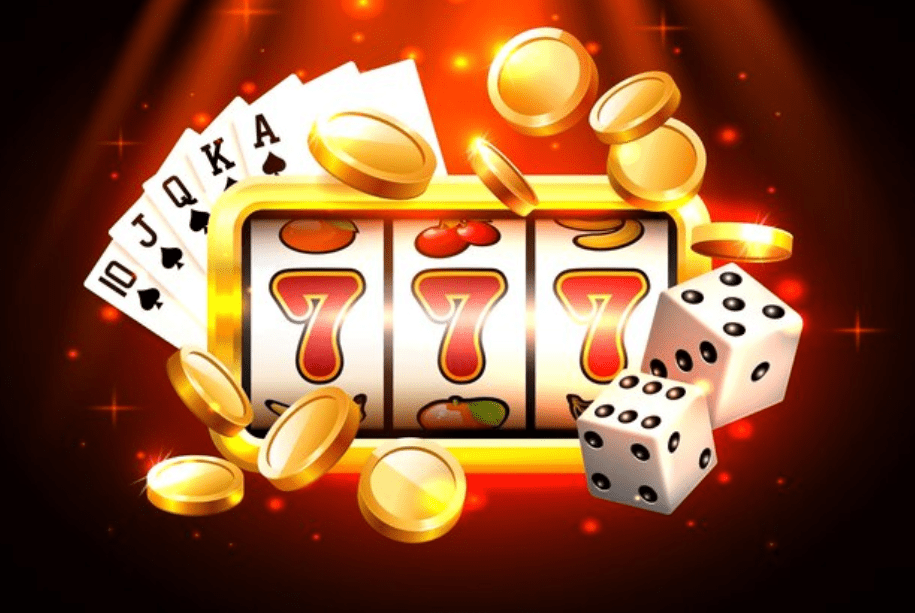The Hidden Math Behind Every Slot Spin: What Players Should Know

Have you ever thought about what really happens when you press the spin button on a slot game? How do the reels stop exactly where they do, and what decides if you win or not? Many players focus on themes, bonuses, and jackpots, but behind every spin, there’s a simple but interesting math system at play. Knowing a bit about this can help you enjoy the game better and understand why results turn out the way they do.
How Slot Machines Use Math to Work?
Slot machines aren’t just about luck. They follow strict mathematical principles to ensure fair and unpredictable results. Every spin operates on a system called the Random Number Generator (RNG). This is a program that continuously runs numbers, even when no one is playing. The moment you press the spin button, the RNG picks a number, which then determines where the reels land.
This means:
- The game doesn’t remember past spins. Each round is completely separate.
- Wins and losses happen randomly, and there's no way to predict the outcome.
- The game is programmed to return a certain percentage of bets to players over time, known as the Return to Player (RTP).
What Is RTP and How Does It Affect Your Game?
RTP stands for Return to Player, and it’s a percentage that shows how much a slot depo 5k is programmed to return to players over time. For example, if a game has an RTP of 96%, it means that for every $100 wagered, the game is expected to give back $96 on average.
But this does not mean you will always get 96% of your money back. RTP is calculated over millions of spins, so results will vary in the short term. Some players may win big, while others may experience longer losing streaks before hitting a payout.
The Role of Volatility in Slot Games
Every slot game has a different volatility level, which affects how often and how much you can win.
- Low volatility slots give frequent but smaller wins.
- Medium volatility slots offer a balance of small and big wins.
- High volatility slots pay less often but can give big rewards when they do.
This means if you like steady wins, a low-volatility game might suit you, while those who enjoy chasing bigger jackpots might prefer high-volatility slots.
Paylines and Ways to Win
Slots come with different ways to form winning combinations. Some games like slot deposit 5000 have fixed paylines, while others use ways to win.
- Paylines: You must match symbols along specific lines to win.
- Ways to Win: Symbols can land anywhere on adjacent reels and still create wins.
Some modern games use the Megaways system, which changes the number of symbols per reel on every spin, giving thousands of possible winning combinations.
Slot Probability: How Chances Are Calculated?
Each symbol in a slot has a probability of appearing on a reel. Developers set these odds based on the game's design. The more rare a symbol, the higher its payout.
For example, if a slot has:
- A jackpot symbol appearing once in every 100 spins
- A high-paying symbol appearing once in every 20 spins
- A low-paying symbol appearing once in every 5 spins
Then, naturally, the jackpot symbol will be harder to land compared to common ones. This ensures fairness while keeping the excitement of hitting rare symbols alive.
How Bonus Rounds and Free Spins Work?
Most slots offer bonus rounds or free spins, which bring extra chances to win. These bonuses also follow mathematical rules. The chances of triggering a bonus round depend on the slot’s programming.
Some slots allow players to buy bonus rounds, skipping the wait and getting straight into the action. This option has a set cost but can be a faster way to chase bigger prizes.
How Slots Stay Fair and Secure?
Slot games are regularly tested by independent agencies to ensure fairness. Regulatory bodies check that:
- The RNG is working properly.
- The RTP is accurate.
- The game follows all industry standards.
Licensed casinos only offer games that pass these tests, ensuring every spin is as fair as possible.
Smart Playing: Tips Based on Slot Math
Understanding the math behind slots can help you make better choices while playing. Here are a few things to keep in mind:
- Choose games with higher RTP. The closer to 100%, the better the long-term returns.
- Pick the right volatility level. If you prefer frequent wins, go for low volatility. If you like bigger wins, try high volatility.
- Set a budget. Since slots are random, plan how much you’re comfortable spending before you start.
- Don’t chase losses. Since every spin is independent, there's no need to bet more after a losing streak.
Conclusion
Slot games may seem simple on the surface, but they run on a structured math system that keeps everything fair and unpredictable. Every spin is based on RNG, ensuring that results are random. RTP and volatility also play a big role in shaping your experience. While luck is always a factor, knowing how the numbers work can help you enjoy the game more and make informed choices.




